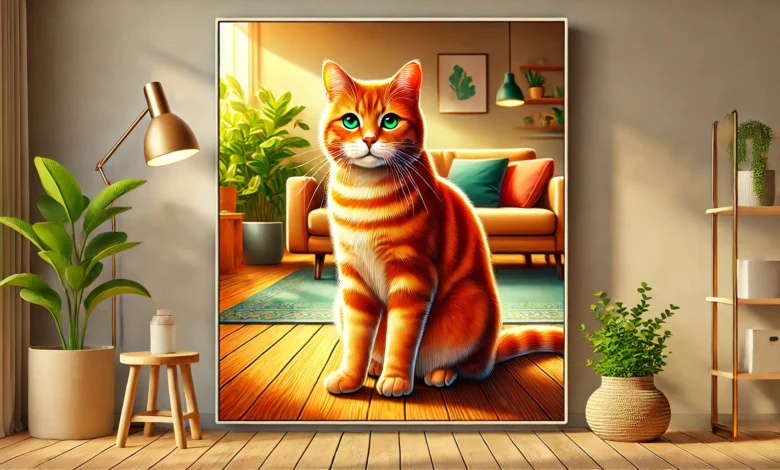The Fascinating World of Orange Cats: Traits, Myths, and Facts

Orange cats, often referred to as ginger cats, have long held a special place in the hearts of cat lovers worldwide. With their striking coats and charming personalities, these felines never fail to captivate those lucky enough to cross their paths. This article dives deep into the world of orange cats, exploring their genetics, behaviors, myths, and why they’re so beloved.
The Genetics of an Orange Cat
Orange cats owe their distinctive coat color to a specific gene called the “O” gene, which is responsible for producing the pigment pheomelanin. This pigment creates colors ranging from light cream to deep reddish-orange. Interestingly, the “O” gene is sex-linked and found on the X chromosome, which means the distribution of orange cats leans heavily toward males.
Approximately 80% of orange cats are male, and this is due to the way the gene interacts with chromosomes. Female cats need two copies of the “O” gene to display an orange coat, while males only need one. This genetic quirk explains the gender disparity and adds a layer of intrigue to their biology.
The Temperament of Orange Cats
Many cat owners claim that orange cats have unique personality traits. While scientific evidence linking coat color to temperament is limited, anecdotal observations suggest that orange cats are often:
- Affectionate: Orange cats tend to be cuddly and enjoy spending time with their human companions.
- Social: They are often more outgoing and friendly compared to other cats.
- Playful: These cats are known for their lively and energetic nature, making them great companions for active households.
However, it’s essential to remember that every cat has a unique personality influenced by factors like upbringing and environment.
Myths and Cultural Significance of Orange Cats
Orange cats have inspired countless myths and stories over the years. Their vibrant coats often associate them with warmth, luck, and joy. In some cultures, an orange cat is believed to bring prosperity and positive energy to a household.
Pop culture has also played a role in their popularity. Iconic orange cats like Garfield, Puss in Boots, and Heathcliff have cemented their place in entertainment, showcasing their mischievous yet lovable personas.
Orange Cat Breeds
Orange cats are not a specific breed but rather a coat color that appears in various breeds. Some breeds known for frequently having orange-coated members include:
- Maine Coon: These large and fluffy cats often display beautiful orange tabby patterns.
- Persian: Persian cats with orange coats are highly sought after for their luxurious fur and calm demeanor.
- American Shorthair: This breed frequently exhibits the classic orange tabby look.
The Tabby Pattern
Most orange cats are tabbies, which means they have distinct patterns on their coats. The tabby pattern is caused by a separate gene and can appear in several forms:
- Mackerel Tabby: Vertical stripes resembling fish bones.
- Classic Tabby: Swirls and blotches, creating a marbled effect.
- Spotted Tabby: Small spots scattered across the coat.
- Ticked Tabby: A more subtle pattern where individual hairs are striped.
Regardless of the specific tabby type, the combination of orange coloring and intricate patterns makes these cats visually stunning.
Why Are Orange Cats So Beloved?
There’s something undeniably charming about orange cats. Their vibrant coloring, combined with their endearing personalities, makes them a favorite among cat enthusiasts. Whether lounging in a sunbeam, playfully chasing a toy, or purring contentedly in your lap, orange cats have a way of bringing warmth and happiness to any home.
Caring for Your Orange Cat
If you’re lucky enough to have an orange cat, here are some tips to keep them happy and healthy:
- Regular Vet Visits: Like all cats, orange cats need routine check-ups to ensure they’re in good health.
- Proper Nutrition: Feed them a balanced diet to maintain a shiny coat and overall well-being.
- Mental Stimulation: Provide toys, scratching posts, and interactive play to keep them mentally engaged.
- Grooming: Depending on the breed, some orange cats may require more grooming to prevent matting and reduce shedding.
Final Thoughts
Orange cats are more than just their stunning coats. They are affectionate, playful, and full of personality, making them treasured members of any family. Whether you’re already an orange cat enthusiast or considering adopting one, these felines will undoubtedly add a splash of color and joy to your life.
Make Sure You also Read This : Undercover tourist



